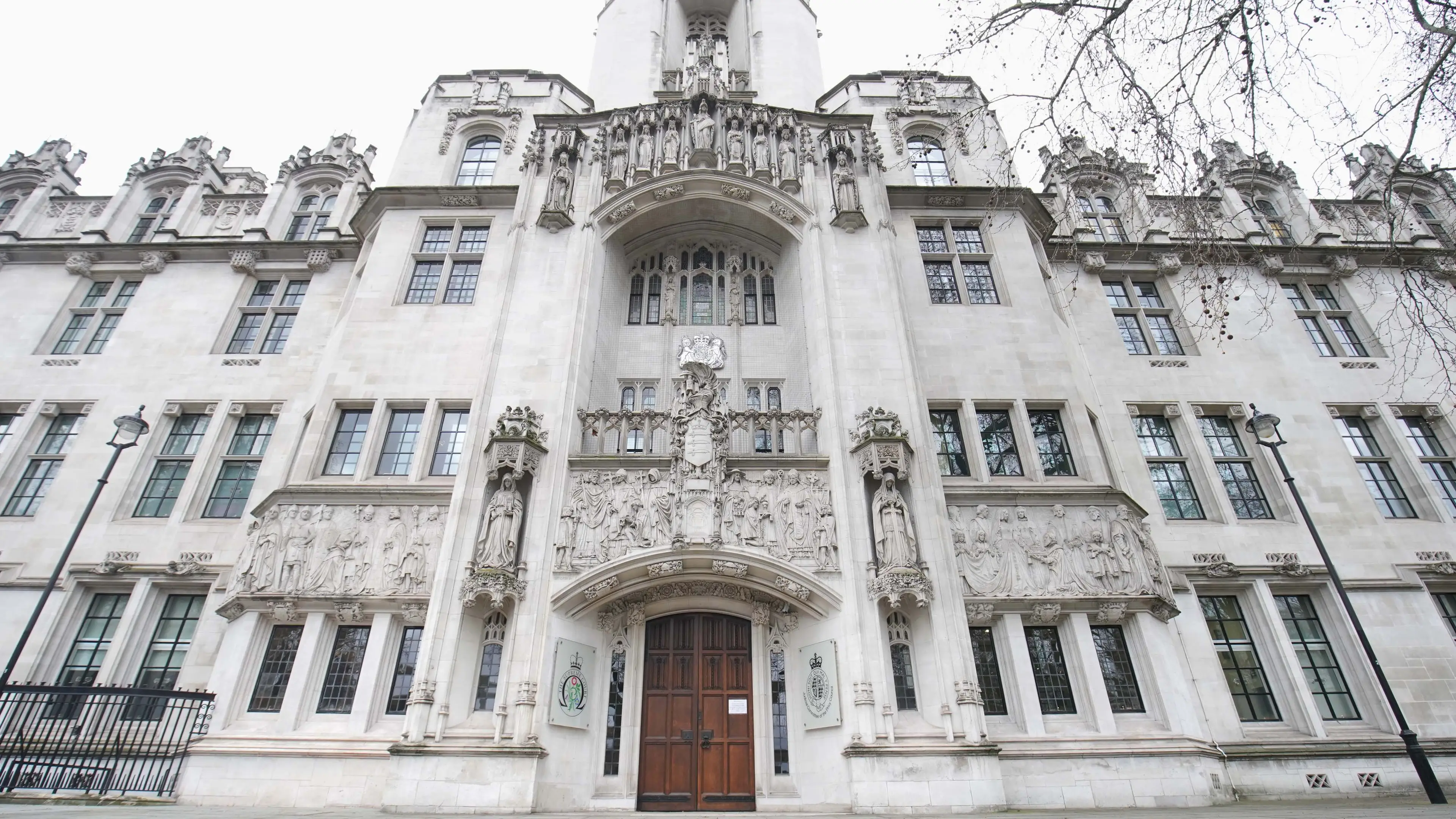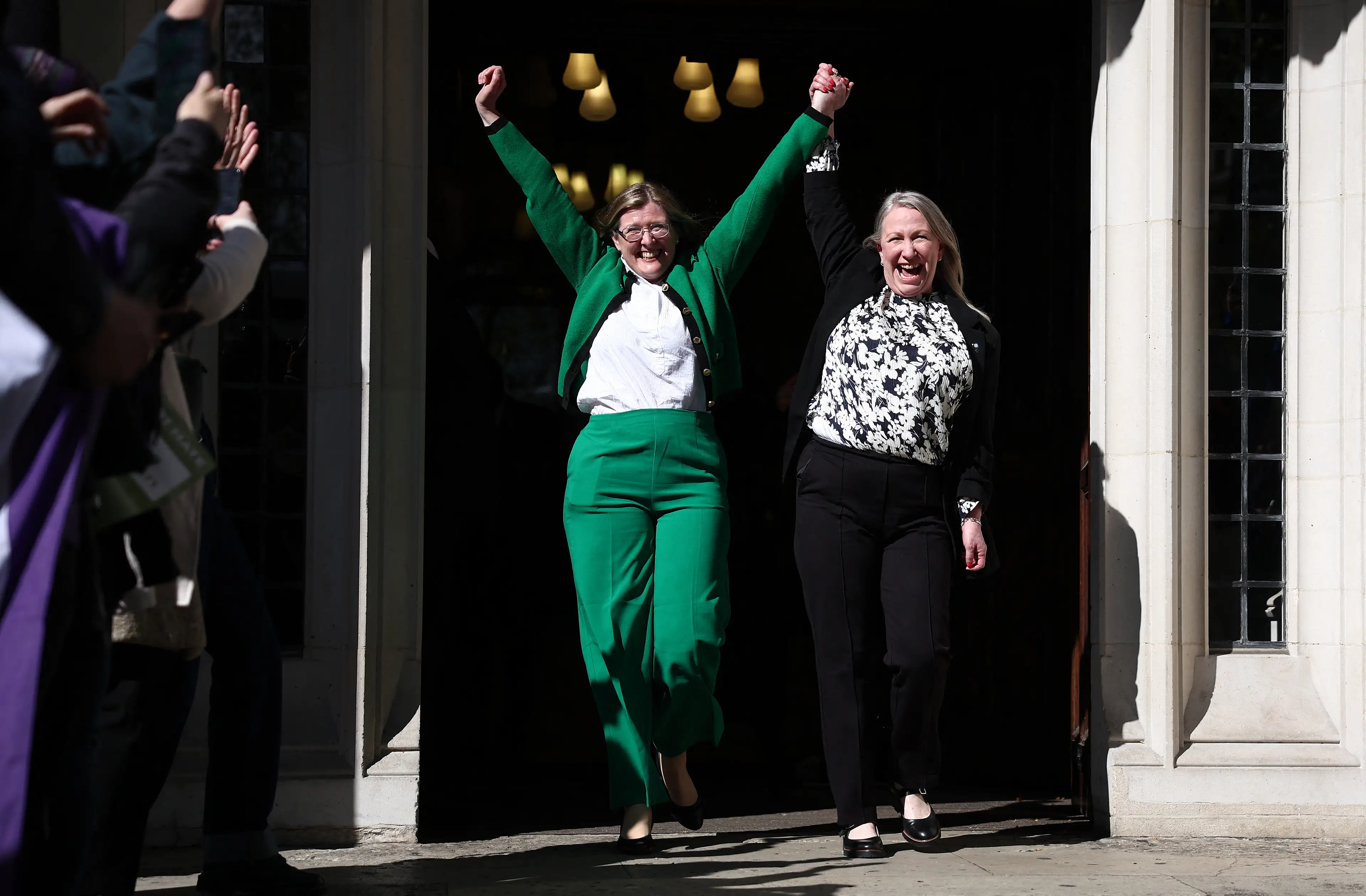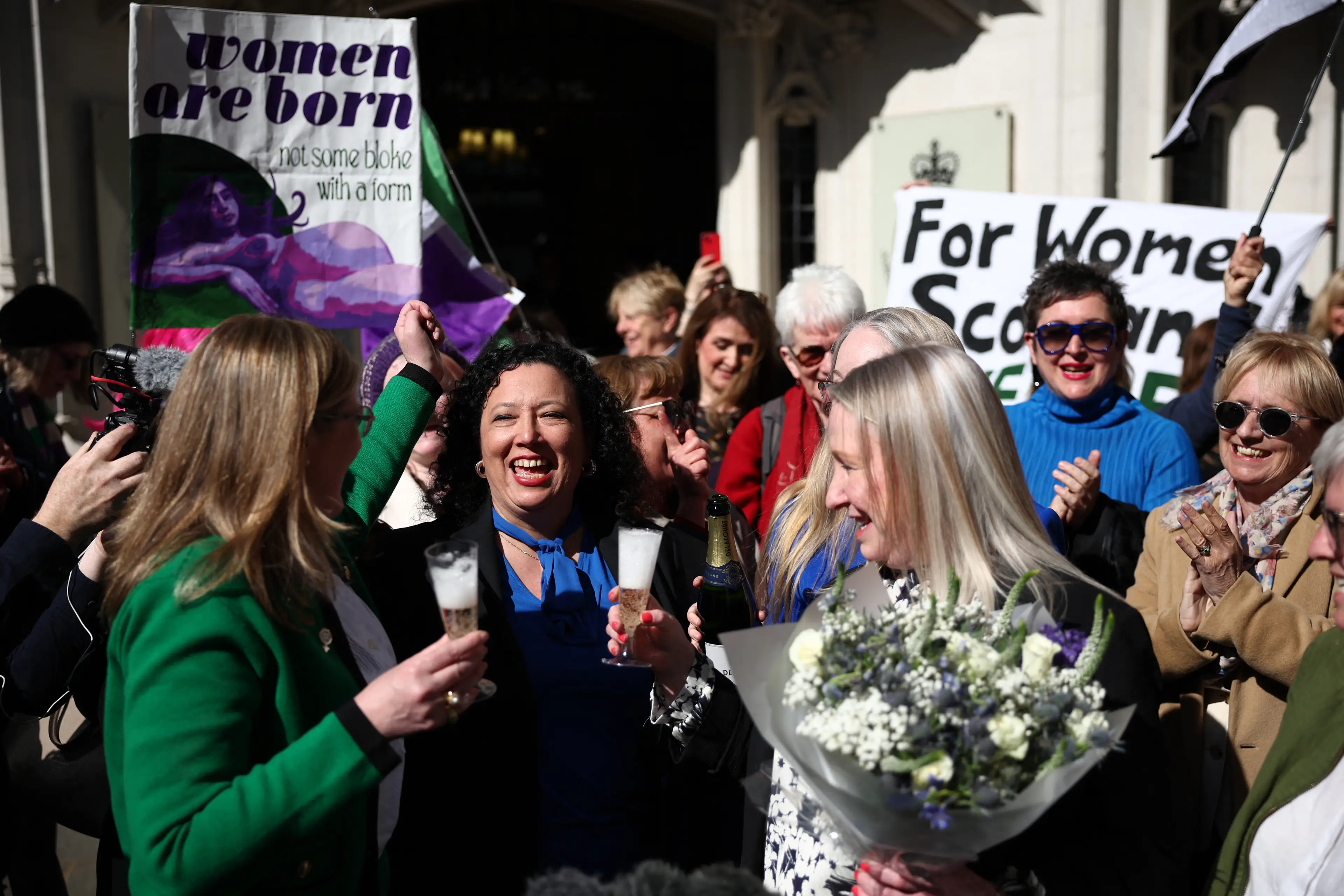
The UK Supreme Court has ruled that the legal definition of a woman is based on biological sex.
This comes after a long-running legal battle between the Scottish government and the For Women Scotland (FWS) group.
The campaigners brought a series of challenges to the UK's highest court over the definition of 'woman' in Scottish legislation mandating 50% female representation on public boards.
The dispute centres on whether someone with a gender recognition certificate (GRC) recognising their gender as female should be treated as a woman under the UK 2010 Equality Act.
Advert
And, in the FWS's favour, justices unanimously ruled this morning (16 April) that the term 'woman' and 'sex' in the Equality Act refer to a biological woman and biological sex.

In an 88-page ruling, Lord Hodge, Lady Rose and Lady Simler said: “The definition of sex in the Equality Act 2010 makes clear that the concept of sex is binary, a person is either a woman or a man.
“Persons who share that protected characteristic for the purposes of the group-based rights and protections are persons of the same sex and provisions that refer to protection for women necessarily exclude men.
“Although the word ‘biological’ does not appear in this definition, the ordinary meaning of those plain and unambiguous words corresponds with the biological characteristics that make an individual a man or a woman."
Delivered by Judge Lord Hodge, the written ruling continued: "A certificated sex interpretation would cut across the definition of the protected characteristic of sex in an incoherent way.
“References to a ‘woman’ and ‘women’ as a group sharing the protected characteristic of sex would include all females of any age, irrespective of any other protected characteristic, and those trans women, biological men, who have the protected characteristic of gender reassignment and a GRC, and who are therefore female as a matter of law.
“The same references would necessarily exclude men of any age, but they would also exclude some, biological, women living in the male gender with a GRC, trans men who are legally male."

The judges claimed the ruling that 'woman' in the Equality Act refers to biological women does not diminish trans women's protections against direct discrimination.
“A man who identifies as a woman who is treated less favourably because of the protected characteristic of gender reassignment will be able to claim on that basis," they said in their statement.
“A man who identifies as a woman who is treated less favourably not because of being trans (the protected characteristic of gender reassignment) but because of being perceived as being a woman will be able to claim for direct sex discrimination on that basis.
“This does not entail any practical disadvantage and there is no discordance (as the Scottish ministers appear to suggest) between the individual’s position in society and the ability to claim on this basis.
“A certificated sex reading of the EA 2010 is not necessary here, and the approach applies equally whether or not the claimant has a Gender Recognition Certificate.”
While supporting campaign groups celebrate this 'victory' and call the judgement 'wonderful', trans rights groups have said it's 'not justice, it's erasure'.